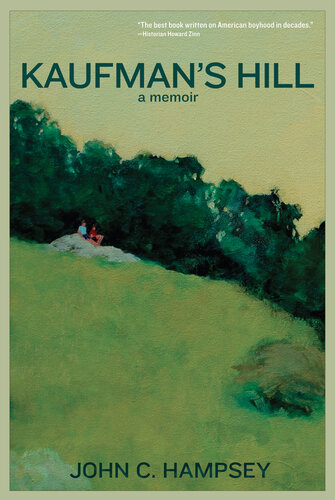

Most ebook files are in PDF format, so you can easily read them using various software such as Foxit Reader or directly on the Google Chrome browser.
Some ebook files are released by publishers in other formats such as .awz, .mobi, .epub, .fb2, etc. You may need to install specific software to read these formats on mobile/PC, such as Calibre.
Please read the tutorial at this link: https://ebookbell.com/faq
We offer FREE conversion to the popular formats you request; however, this may take some time. Therefore, right after payment, please email us, and we will try to provide the service as quickly as possible.
For some exceptional file formats or broken links (if any), please refrain from opening any disputes. Instead, email us first, and we will try to assist within a maximum of 6 hours.
EbookBell Team

4.8
84 reviewsA PROFOUND AND INTENSELY MOVING BOYHOOD MEMOIRKaufman’s Hill opens with a prosaic neighborhood scene: The author and some other young boys are playing by the creek, one of their usual stomping grounds. But it soon becomes clear that much more is going on; the boy-narrator is struggling to find his way in a middle-class Catholic neighborhood dominated by the Creely bullies, who often terrify him. It’s the Pittsburgh of the early and mid-1960s, a threshold time just before the counter-culture arrives, and a time when suburban society begins to encroach on Kaufman’s Hill, the boy’s sanctuary and the setting of many of his adventures. As the hill and the 1950s vanish into the twilight, so does the world of the narrator’s boyhood.“My pappy says if you’re going to be afraid of everything, you may as well live in the sewer” are the words that first open the narrator’s eyes. And once he befriends the enigmatic, erratic, but charismatic Taddy Keegan, he becomes bolder and no longer lives in abject fear of the Creelys. The narrator’s relationship with Taddy proves to be unconventional, though. Taddy, caught in his own imaginary universe, is often unaware of companions around him. The narrator focuses on uncovering the mystery of Taddy: Why does he live his life like he’s a performer? Who is he really?The narrator’s world is a mix of exhilarating freedom―because of absent parents, teachers, and priests―and imminent dangers. And his home life is problematic. The narrator observes his taciturn father as he copes with manic behaviors and cyclically repeating problems, while his mother struggles to better the life not just of her young son, but that of her African American cleaning woman in a time of racial animosity and racially-related urban violence. The boy watches his parents with eyes too young to truly understand, and is increasingly disappointed by an increasingly remote father who rarely speaks to him.As the narrator matures, his self-concept
…